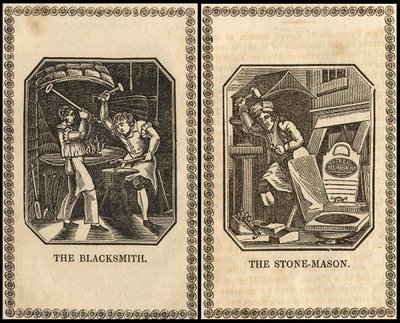
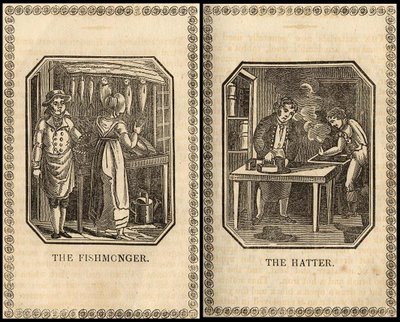
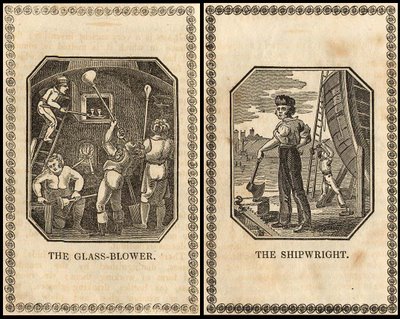
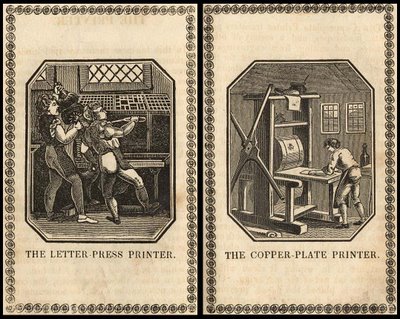
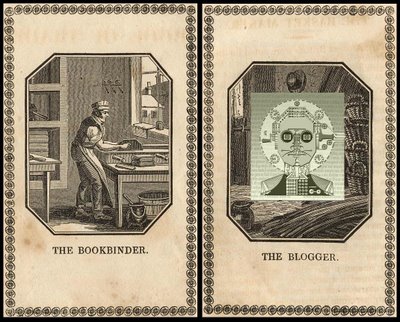

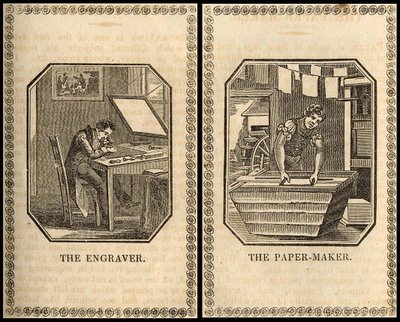

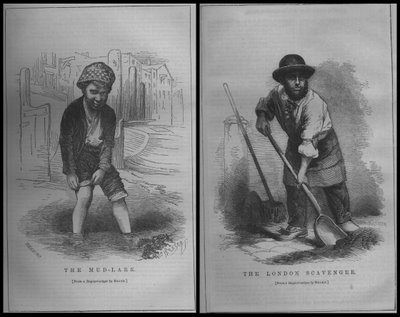
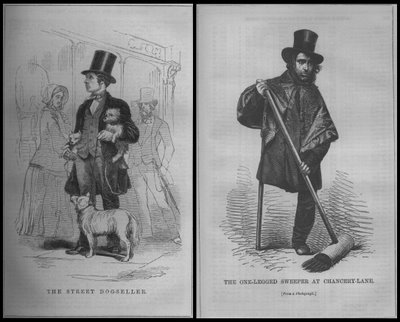
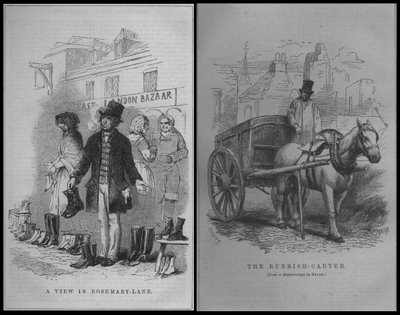
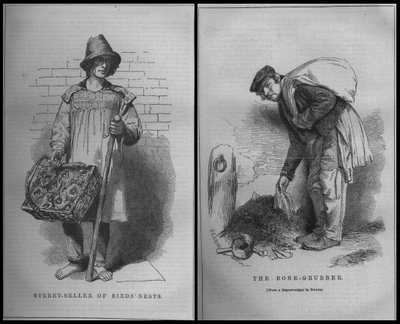
The top section of images come from 'The book of trades; or, Familiar descriptions of the most useful trades, manufactures, and arts practised in England : and the manner in which the workmen perform their various employments. London: A. K. Newman, undated, inscribed 1829' at the Digital Library for the Decorative Arts and Material Culture from the University of Wisconsin. {click on 'Display Gallery View'} [And apologies to normanpublishing]
The rest of the images are from 'London Labour and the London Poor' [Volume 2] 1861 by Henry Mayhew, among the 'The Bolles Collection on the History of London' at Tufts Digital Library. [Mayhew: CISS/Wikipedia] -- This is a truly fascinating (not to mention patronising) and detailed survey of the wretched vagabonds and street hustlers of Victorian London. It includes extensive interviews of subjects and methodical profiling of the seediest 'occupations'. It is the Dickens of non-fiction.
Of the Street-Finders or Collectors
"These men, for by far the great majority are men, may be divided, according to the nature of their occupations, into three classes:--
1. The bone-grubbers and rag-gatherers, who are, indeed, the same individuals, the pure-finders, and the cigar-end and old wood collectors.
2. The dredgermen, the mud-larks, and the sewer-hunters.
3. The dustmen and nightmen, the sweeps and the scavengers.
The first class go abroad daily to find in the streets, and carry away with them such things as bones, rags, “pure” (or dogs’ dung), which no one appropriates. These they sell, and on that sale support a wretched life.
The second class of people are also as strictly finders; but their industry, or rather their labour, is confined to the river, or to that subterranean city of sewerage unto which the Thames supplies the great outlets. These persons may not be immediately connected with the streets of London, but their pursuits are carried on in the open air (if the sewer-air may be so included), and are all, at any rate, outof- door avocations.
The third class is distinct from either of these, as the labourers comprised in it are not finders, but collectors or removers of the dirt and filth of our streets and houses, and of the soot of our chimneys."
- The History of Work Information Systems have 746 images "on the world of work in the past, taken from various books and collections." The images are not very big, however.
- I spent so much time dithering, reading about the convoluted intricacies of Crossing Sweeps that I didn't even manage to have an entry ready for posting on the 1st birthday of this here lowly establishment. I may have to have a week off as penance.
No comments:
Post a Comment